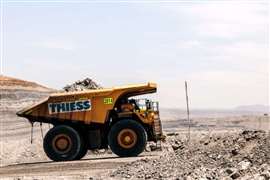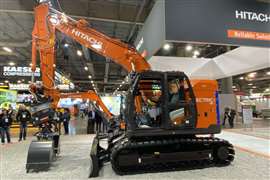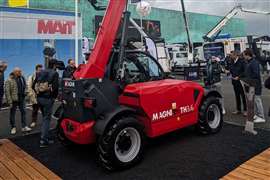First zero emission RTGs in Asia
11 April 2011

Cargotec has delivered Asia's first zero emission rubber tyred gantries (RTG) to Cat Lai Terminal in Ho Chi Minh City, Vietnam.
The six Kalmar Zero Emission E-One2 RTGs were ordered by Vietnam's terminal operator Saigon Newport (SNP) and its subsidiaries, Tan Cang Logistics Joint Stock Company (TCL) and Tan Cang Warehousing Joint Stock Company (TCW).
The 6+1 wide, 1-over-5 high model with the manufacturer's Zero Emission technology is Cargotec's most environmentally friendly model.
The machines are powered through mains supply and regenerate energy when lowering loads, supplying the power back to the network. This means the customer only pays for the energy it consumes.
In addition, Zero Emission cranes provide the longest period in the industry between required maintenance checks, according to the company. This is because when the power unit is eliminated it increases uptime and keeps the terminal clean with no risk of oil leakage.
"The machines boast major environmental and economical advantages, such as no local emissions, low operating costs and reduced maintenance," said a company spokesman.
SNP is Vietnam's largest container terminal operator. The company handles 80% of import and export volumes in the Ho Chi Minh City area and nearly 50% nationwide, it says.
Cargotec delivered the world's first zero emission RTGs to the Port of Oslo in 2002, says the company.






